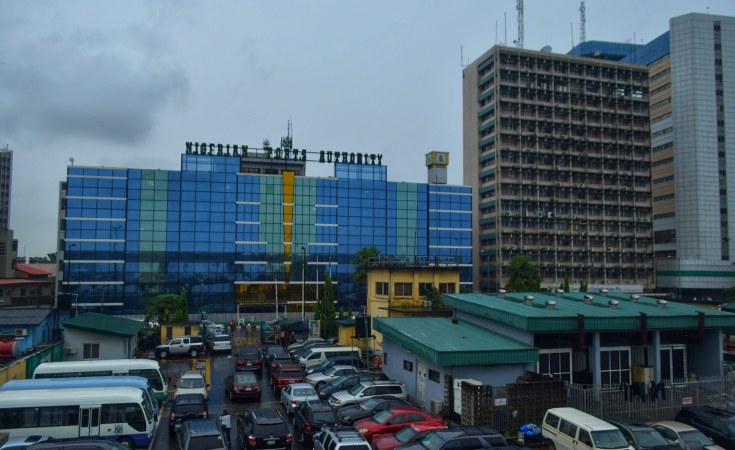Commodity exporters in Africa will likely face weaker market conditions given the expected global economic slowdown, it said
The Nigerian economy is expected to grow by 3 per cent in 2023, the United Nations (UN) has said.
The UN, in its 2023 World Economic Situation and Prospects report published on its website, said high inflation and power supply issues are impacting growth in Nigeria.
"But the economy will benefit from robust commodities trade and dynamic consumer goods and services markets, bringing growth to 3 per cent in 2023," it said.
The global body said aggregate output in Africa is projected to remain subdued amid a volatile and uncertain global environment compounding domestic challenges.
"Aggregate economic growth is estimated to weaken to 3.8 per cent in 2023 from 4.1 per cent in 2022, due to subdued investment and deteriorating export volumes," it said.
The report noted that in 2023, growth is expected to pick up in East Africa and West Africa while stabilising in Central Africa.
According to the report, favourable export prices will benefit commodity exporters but a slowdown in global demand will pose challenges.
"Commodity exporters in Africa will likely face weaker market conditions given the expected global economic slowdown. Export prices will probably remain high, however, amid fierce competition for the continent's primary commodities.
"In 2023, commodity prices are projected to ease but remain at historically high levels. Despite volatility in energy, metals and minerals, commodity exporters are expected to continue to benefit from an overall terms-of-trade boost to their external balances in the short term," it said.
Regional outlook
The UN explained that African mineral exporters Botswana, the Democratic Republic of the Congo, Namibia, Nigeria, Sierra Leone, South Africa, the United Republic of Tanzania, Zambia and Zimbabwe will likely receive increased investments, with Europe looking for alternative sources of critical minerals, metals and precious stones.
The report said inflation pressures are expected to ease in 2023 as monetary policy tightens across the continent.
"Low and falling growth in income per capita estimated to drop to 1.4 per cent in 2023 after averaging 1.6 per cent in 2021 and 2022 will keep poverty entrenched and prevent countries from accelerating progress towards the SDGs.
"In line with the global pickup in inflation, price levels have risen significantly in African countries but are projected to moderate in 2023," the report added.
It said the share of African countries experiencing double-digit inflation rose to 40 per cent in 2022, driven mainly by supply chain disruptions and the fallout from the
war in Ukraine, which made essential food and energy items more expensive.
"To combat inflation and exchange rate pressure, about two-thirds of African countries increased domestic policy interest rates in 2022. Most countries will likely further increase rates in 2023 in parallel with the projected monetary stance of the Federal Reserve in the United States and the European Central Bank," the report said.
Fiscal concerns
Meanwhile, the report said fiscal positions across Africa have deteriorated as governments sought to protect lives and livelihoods during the pandemic.
The UN noted average public debt increased to over 60 per cent of GDP and will likely remain at this level in 2023.
Such a magnitude, the report said, was last seen in the early 2000s, just before the launch of the Heavily Indebted Poor Countries Initiative.
Given higher interest rates, the report added that with weaker currencies against the dollar and lower capital inflows, a number of African countries will face challenges in servicing and rolling over a large volume of debt, especially in 2024, when principal repayment of about $11 billion on Eurobonds will be due.
"Pressure to implement economic reforms and trim government expenditures will intensify for several African countries. Political uncertainty due to upcoming elections in some nations, however, will likely delay major changes," it said.
According to the report, downside risks dominate the African economic outlook for 2023.
"Persistently high global inflation may prompt quicker and greater tightening by central banks in major advanced economies, which would depress global demand, raise international and domestic borrowing costs, and cut investment in the continent.
"A global slowdown and tighter financial conditions as well as a decline in official development assistance (ODA) could hamper debt sustainability and efforts to protect more vulnerable segments of society.
"Unexpected capital outflows could disrupt economies with large external financing needs," the report said.
It further explained that an escalation of the war in Ukraine and extended disruption to Russian exports could accentuate current inflationary pressures on food and energy prices that would aggravate food affordability concerns for vulnerable populations and might spark social discontent.
"A broad-based and severe slowdown of the global economy looms large amid high inflation, aggressive monetary tightening, and heightened
uncertainties. Many economies are at risk of falling into recession, having barely recovered from the shock of the pandemic," the United Nations secretary-general, António Guterres, said in the foreword of the report.
He said the fiscal space of developing countries is under siege from exchange rate depreciation, high borrowing costs and rising debt distress.
"While taming inflation remains a key near-term objective, policymakers must also consider tradeoffs with slower growth, employment losses and international spillovers.
"This is not the time for short-term thinking or knee-jerk fiscal austerity that exacerbates inequality, increases suffering and could put the SDGs farther out of reach. These unprecedented times demand unprecedented action," he said.


